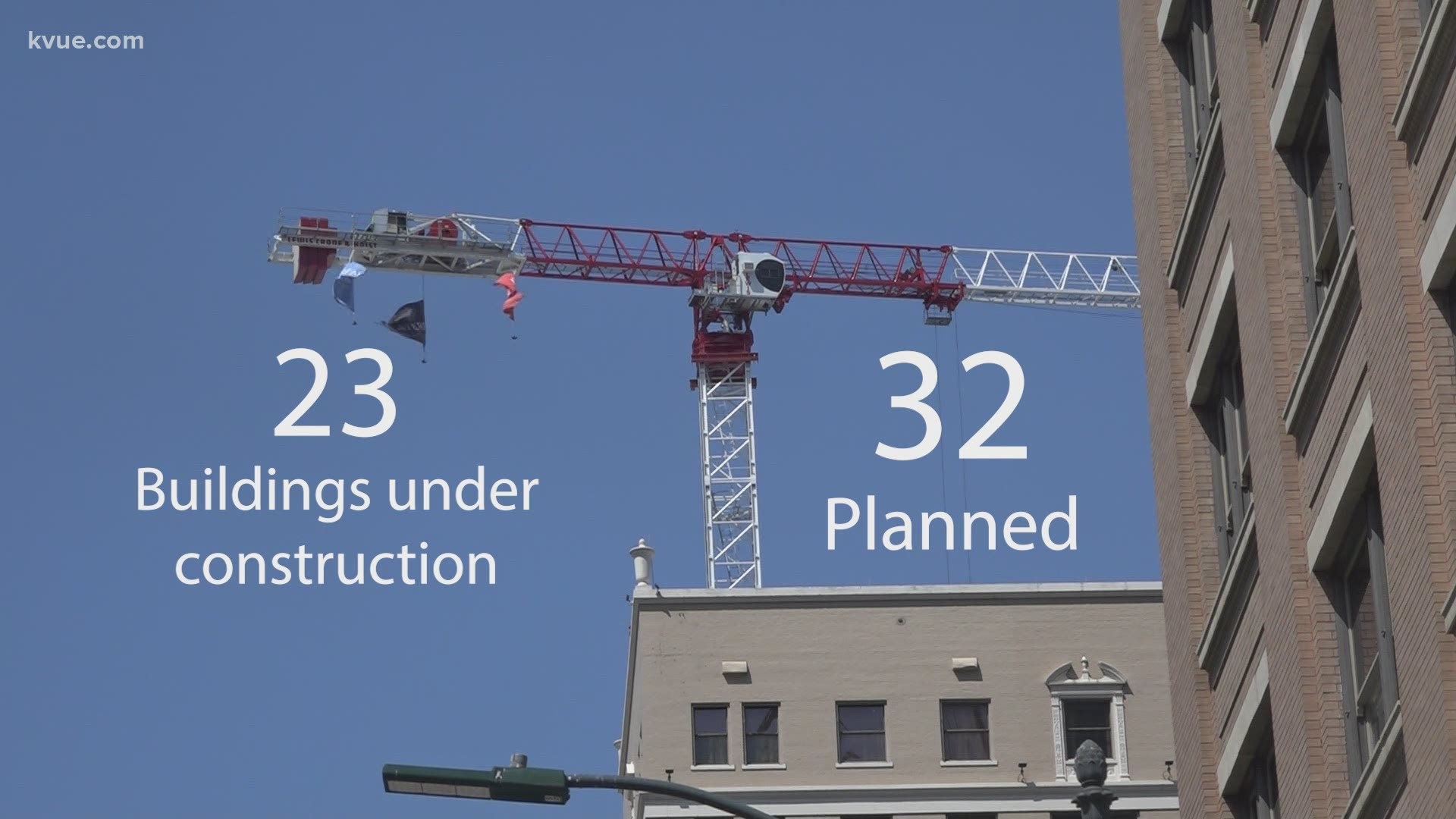AUSTIN, Texas — A new report is shedding light on the devastating impacts of the pandemic on Austin.
The Downtown Austin Alliance found consumer spending has not returned to pre-pandemic levels, dropping more than 50% in the past year. Foot traffic has also seen a huge decrease, down nearly 75% downtown.
But Dewitt Peart, president and CEO of the Downtown Austin Alliance, told KVUE on Wednesday the alliance is optimistic foot traffic is on the rise again.
"From our perspective, it's all about the pedestrian traffic and foot traffic in getting people back," he said.
Despite the downturn overall, the demand for housing remains strong in the city's core, as employment and population grow and many projects with retail and commercial space are still planned.
There are currently 23 buildings under construction and another 32 planned in the downtown area. Two apartment projects will bring more than 600 units to the growing Rainey Street neighborhood.
The addition of 1.5 million square feet of office space downtown will be an annual record, while the downtown area added 1,000 new hotel rooms.
The alliance also released a Roadmap to Recovery, offering suggestions on how the downtown area can fare better in the future.
“By any measure, 2020 was a difficult year for downtown,” Jenell Moffett, director of research and analysis for the Downtown Austin Alliance, said. “However, as we began to adapt and identify innovative ways to keep downtown as open as it could be, signs of recovery became more and more evident. So many people love downtown Austin, and because it is the economic engine of our region, we need to ensure it remains a destination for job creators, residents, local visitors and tourists. The fundamental strengths are a strong foundation to build upon.”
The alliance’s Roadmap to Recovery and Resilience includes priorities such as addressing the unsheltered homeless community downtown, activating more parks and public spaces, increasing support of small businesses and music venues and marketing the downtown area.
“Our focus since March 2020 has been how to ensure downtown can recover and become more resilient to economic threats,” Peart said. “This roadmap lays out a vision that will do exactly that. It won’t happen overnight, but our team is dedicated to working with the community and local government officials and stakeholders to implement this vision that will result in a better downtown experience and a downtown economy that is better able to withstand future catastrophic challenges.”
KVUE caught up with the co-owner of Wild About Music in Downtown Austin, Teghan Hahn, to talk more about how foot traffic has looked recently in the area.
"Around March we started to see things pick back up," she said. "The weekends would start to feel almost normal. We'd have to cap capacity and ask people to very patiently wait to enter some of the stores. So that was good to see, and yes, we're feeling hopeful. The weekdays are still pretty slow with very little office workers still in town."
Hahn is part of an ownership group that also owns Austin Rocks, Toy Joy and Yummi Joy. She explained that, combined, the stores have lost $2 million in the past 12 months. However, things are starting to look up.
"We are showing that we're back up between 60% and 70% of what we were doing in 2019, which was a really strong year for us. So that feels pretty hopeful, given that we're not even through this yet," she said.
PEOPLE ARE ALSO READING:

